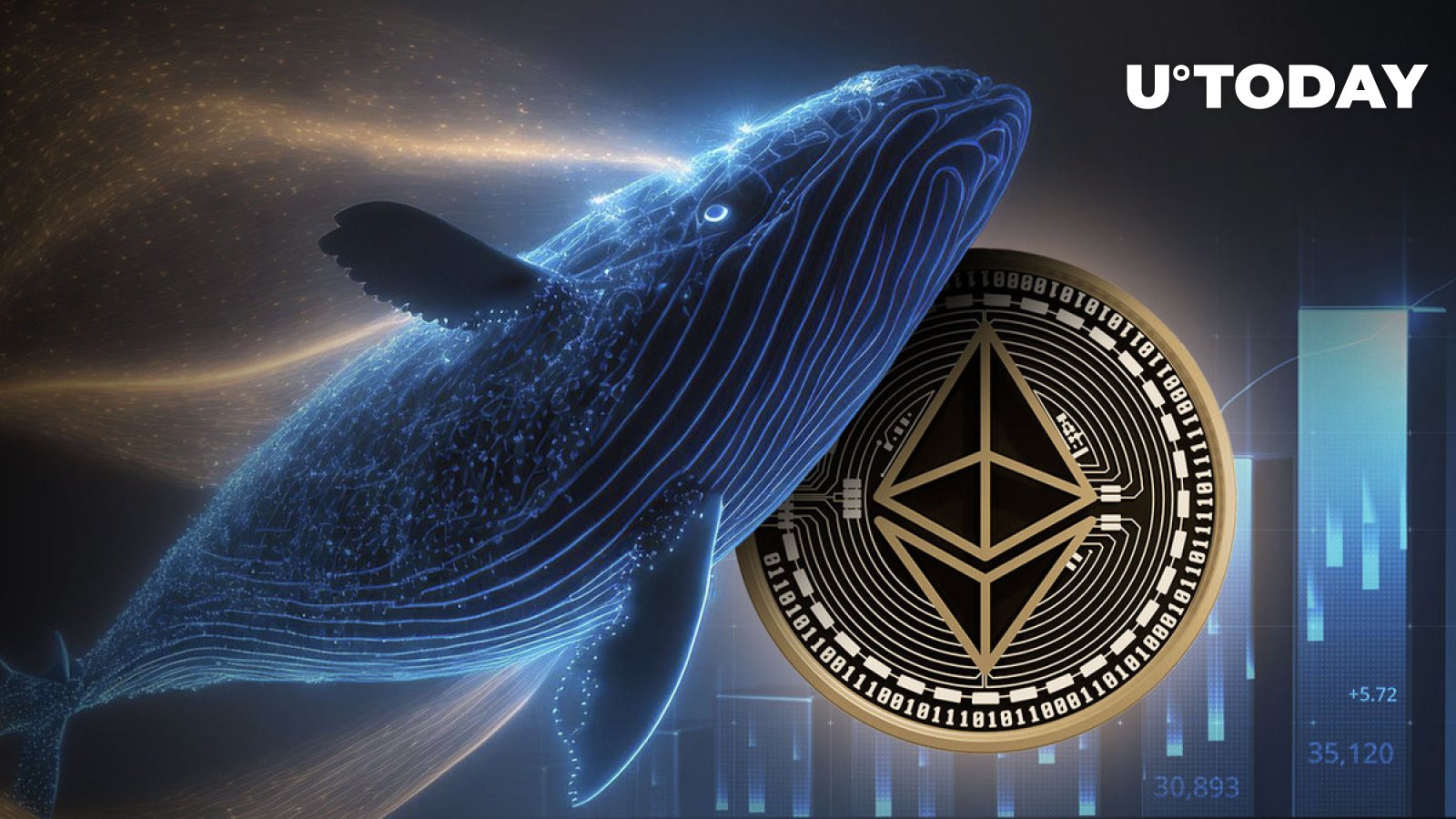Disclaimer: The opinions expressed by our writers are their own and do not represent the views of U.Today. The financial and market information provided on U.Today is intended for informational purposes only. U.Today is not liable for any financial losses incurred while trading cryptocurrencies. Conduct your own research by contacting financial experts before making any investment decisions. We believe that all content is accurate as of the date of publication, but certain offers mentioned may no longer be available.
Crypto analyst Ali spots massive token accumulation among Ethereum whales. He observes that whales have been on a steady ETH accumulation spree for nine days in a row for the first time in nine months.
Ali believes that the increasing buying pressure could be a strong signal for bullish ETH price action.
As network growth accelerates, Ethereum large whale addresses control over 30% more ETH than a year ago, per on-chain data.
According to Santiment, the 200 largest Ethereum wallets now contain a total of 62.76 million ETH, which is now valued at $132.1 billion, up from 48.2 million in November 2022. Since Nov. 21, 2022, they have amassed 30.3% additional coins and now control 52% of Ethereum’s circulating supply.
Furthermore, 94,700 new ETH wallets were created on Nov. 21, the largest number since July.
ETH was down 1.22% in the last 24 hours to $2,076 at the time of writing. On Nov. 24, bulls drove the price of Ethereum to a high of $2,134 before falling. If this level is breached, ETH might begin a northward march toward $2,200, perhaps opening the door for a rise to $3,400.
This optimistic outlook will be rendered meaningless in the near term if the price falls below the critical support level of $1,900.
Ethereum Dencun upgrade
Ethereum developer Tim Beiko shared a brief recap of the ACDE call held earlier this week. Developers have agreed to launch Devnet 12 next week, given that Devnet 11 is mostly stable, except for a minor peering issue between ETHJS and Lodestar.
Developers also decided that once Dencun is live on Goerli, all client teams and EF DevOps will shut down their validators three months after Goerli or one month after the mainnet has been upgraded.
While anybody can run a validator on Goerli, no one can “sunset” the network; validators account for the large bulk of the stake and have historically been the most dependable.
